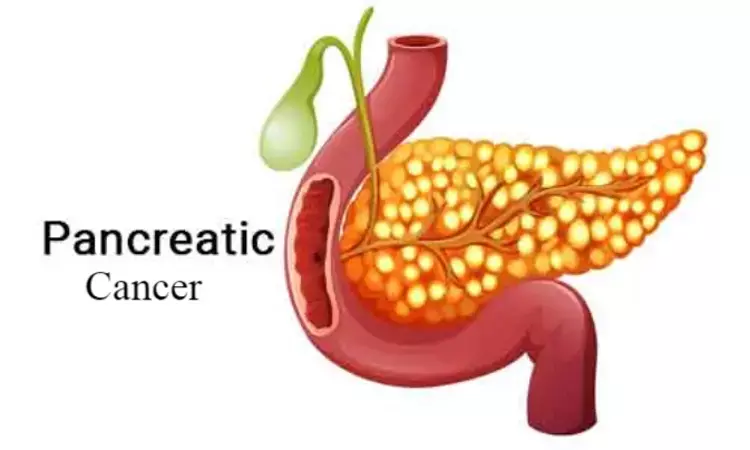- Home
- Medical news & Guidelines
- Anesthesiology
- Cardiology and CTVS
- Critical Care
- Dentistry
- Dermatology
- Diabetes and Endocrinology
- ENT
- Gastroenterology
- Medicine
- Nephrology
- Neurology
- Obstretics-Gynaecology
- Oncology
- Ophthalmology
- Orthopaedics
- Pediatrics-Neonatology
- Psychiatry
- Pulmonology
- Radiology
- Surgery
- Urology
- Laboratory Medicine
- Diet
- Nursing
- Paramedical
- Physiotherapy
- Health news
- Fact Check
- Bone Health Fact Check
- Brain Health Fact Check
- Cancer Related Fact Check
- Child Care Fact Check
- Dental and oral health fact check
- Diabetes and metabolic health fact check
- Diet and Nutrition Fact Check
- Eye and ENT Care Fact Check
- Fitness fact check
- Gut health fact check
- Heart health fact check
- Kidney health fact check
- Medical education fact check
- Men's health fact check
- Respiratory fact check
- Skin and hair care fact check
- Vaccine and Immunization fact check
- Women's health fact check
- AYUSH
- State News
- Andaman and Nicobar Islands
- Andhra Pradesh
- Arunachal Pradesh
- Assam
- Bihar
- Chandigarh
- Chattisgarh
- Dadra and Nagar Haveli
- Daman and Diu
- Delhi
- Goa
- Gujarat
- Haryana
- Himachal Pradesh
- Jammu & Kashmir
- Jharkhand
- Karnataka
- Kerala
- Ladakh
- Lakshadweep
- Madhya Pradesh
- Maharashtra
- Manipur
- Meghalaya
- Mizoram
- Nagaland
- Odisha
- Puducherry
- Punjab
- Rajasthan
- Sikkim
- Tamil Nadu
- Telangana
- Tripura
- Uttar Pradesh
- Uttrakhand
- West Bengal
- Medical Education
- Industry
Study identifies factors for long-term survival in pancreatic cancer patients

Pancreatic cancer is predicted to become the second leading cause of cancer-related deaths by 2030. However, recent developments in staging and treatment provide options to improve the long-term survival rate for an otherwise devastating diagnosis.
Researchers conducted a new study to identify prognostic factors that are able to predict long-term survival of patients affected by Pancreatic Duct Adenocarcinoma.
The study suggests a new concept of resectability and identifies objective pre-operative prognostic factors that can predict long-term survival of patients affected by pancreatic ductal adenocarcinoma (PDAC), the most common type of pancreatic cancer.
It offers a roadmap to new guidelines for physicians in prioritizing treatments and improving outcomes through surgery.
The study has been published in the Journal Annals of Surgery.
the study, researchers analyzed nearly 8,000 patients who underwent pancreatic resection for PDAC from January 2010 to December 2016. The research found that the main prognostic factors for survival were age, sex, levels of carbohydrate antigen CA 19-9, tumor size, primary site, neo-adjuvant treatment (a treatment given to shrink a tumor before surgery), Charlson/Deyo score and facility type. For example, academic facilities were associated with better survival rates. The strength of the findings were validated by a high significant randomized test, log-rank test and simple hazard ratio.
One of the most critical findings is that the tumor engagement of peri-pancreatic arteries at pre-operative scans, historically considered by several centers a contraindication for surgery, does not have a negative impact on survival rates after resection.
"This is the only existing nomogram based on pre-operative objective variables able to assess the chance of long-term survival after surgery for PDAC," said Atsushi Oba, MD, PhD, research associate for surgical oncology, University of Colorado Department of Surgery, and lead author of the paper. "Our results suggest that current classifications of resectability on local anatomic and radiologic features should no longer be considered accurate and that more precise prognostic criteria should be defined. The new PDAC nomogram can become a useful tool for patients and counseling physicians in selecting therapy."
The study offers the advantage of estimating the outcome of each patient before an operation, and regardless of local anatomic features of the tumor, to understand if a patient qualifies or not for an operation based on his or her long-term predicted survival. The use of the nomogram in clinical practice should be proposed after a prospective validation.
"These results support the direction we're taking at the University of Colorado Anschutz Medical Campus," said Dr. Richard Schulick, MD, MBA, FACS, Chair of the Department of Surgery and Director of the University of Colorado Cancer Center on the campus. "By providing a multidisciplinary approach to the treatment of pancreatic diseases, we offer patients personalized care and can match candidates with different kinds of therapies that will work best for their individual case. The result is introducing a new concept of prognosis-based staging for patients and the possibility to overcome the old concept and limitations of the anatomical staging of the disease."
For further reference log on to:
Dr Kamal Kant Kohli-MBBS, DTCD- a chest specialist with more than 30 years of practice and a flair for writing clinical articles, Dr Kamal Kant Kohli joined Medical Dialogues as a Chief Editor of Medical News. Besides writing articles, as an editor, he proofreads and verifies all the medical content published on Medical Dialogues including those coming from journals, studies,medical conferences,guidelines etc. Email: drkohli@medicaldialogues.in. Contact no. 011-43720751


